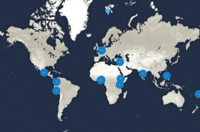Search
Please use this search facility to search all content found within the website:
The Crop Diversity Digest
From cutting-edge research to work saving seeds in communities, even our small actions can have a big impact on saving crop diversity and putting it to good use. Read the latest news highlighting these efforts and more.








